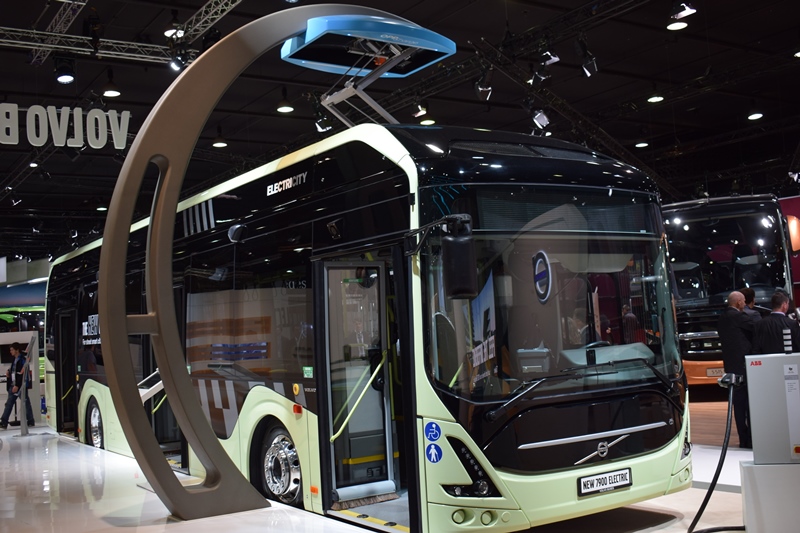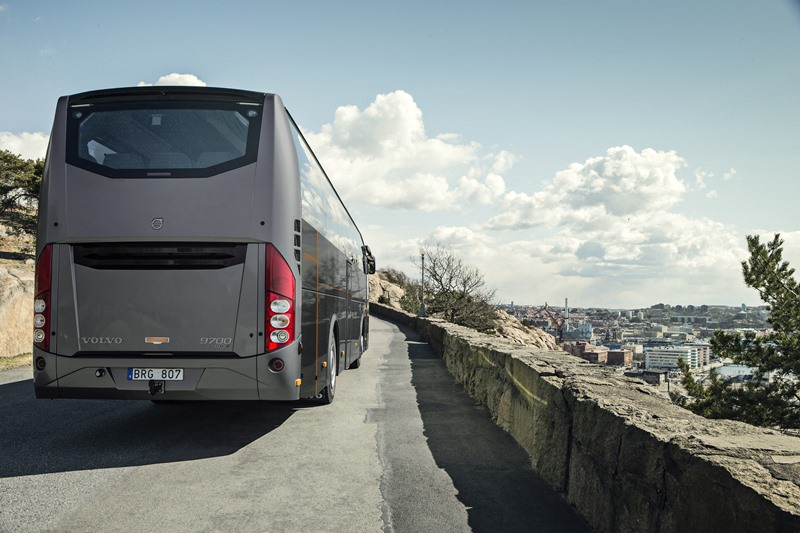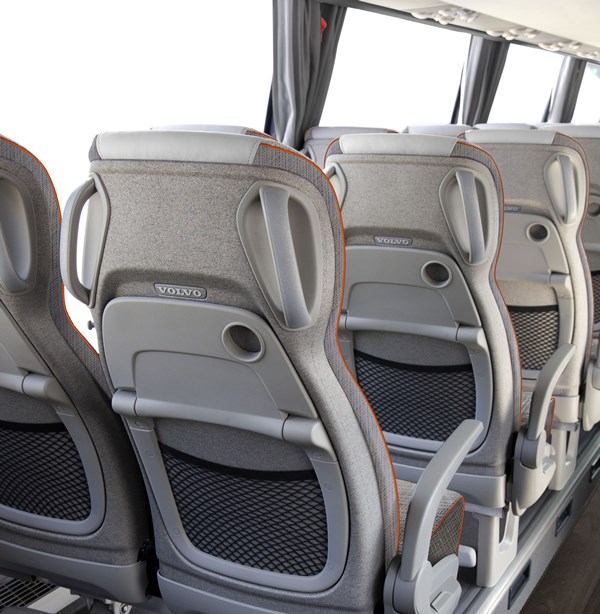Volvo Buses introduced its specially designed high-spec versions of the Volvo 9900 and Volvo 9700 tourist coaches at the Busworld show. The buses will be built in limited numbers and is available for sale from 20 October to the end of the year.
“After 45 years, Busworld opened its doors in the city of Kortrijk for the very last time in 2017. We want to highlight this special occasion and the immense significance the exhibition has had as a meeting-place, by offering our customers something out of the ordinary,” says Stefan Guttman, VP Commercial Development Europe at Volvo Buses.
In addition to its high standard comfort level, both the Volvo 9900 and the Volvo 9700 in “Kortrijk Edition” featured a range of unique interior and exterior design elements and badges, specially designed seat upholstery, leather-clad entry grab-handles, chassis with automatic height control and Volvo’s fuel-saving I-See system.
The comprehensive safety equipment includes features such as a camera to cover the “blind spot”, Volvo Dynamic Steering, Lane Keeping Support, Adaptive Cruise Control, Collision Warning with Emergency Braking, Knee Impact Protection, Front Impact Protection, Front Under-run Protection System and extra lighting for good vision and visibility.
The Volvo 9900 Kortrijk Edition and Volvo 9700 Kortrijk Edition will be built in 10 units only, and will be available on all markets throughout Europe. Sales began on 20 October and will continue to the end of the year.
New Volvo 7900 Electric offers greater range and flexibility
With significantly extended range and more charging options, the new Volvo 7900 Electric offers bus operators even greater flexibility. Battery capacity, in particular, has been significantly extended. The new Volvo 7900 Electric is available with a choice of 150, 200 and 250 kWh. This means that the bus can run far longer between charges, allowing it to be utilised more efficiently throughout the day.
“This is a very important reinforcement of our electromobility product range, giving our customers maximum flexibility in their daily operations. During peak hours the buses can operate continuously without stopping to recharge. Instead, the batteries can be charged once traffic is at off-peak levels. On shorter routes, they can even run throughout the day and be charged at night,” said Håkan Agnevall, President of Volvo Buses.
“As the demand for electric buses has grown very rapidly both in Europe and the rest of the world, it feels really good that we can offer cities an electric-bus system that provides better preconditions than ever to switch to sustainable, quiet and emission-free public transport.”
Volvo Buses has also expanded the range of options regarding the way the batteries are charged. Just like before the batteries in the new Volvo 7900 Electric can be fast-charged at the route’s end stops, via the open and competition-neutral OppCharge interface. However, it can now also be charged via cable, CCS, which is the European standard for charging of electric vehicles from the mains grid.
“Operators can choose the charge interface that best suits each particular occasion. For instance, CCS is suitable for high-power charging when the bus is parked in the depot,” said Johnny Lidman, Product Manager City Buses Europe at Volvo Buses.
The electric buses are sold in the form of a complete, turnkey solution, with Volvo taking care of all maintenance of both vehicles and batteries at a fixed monthly cost.


